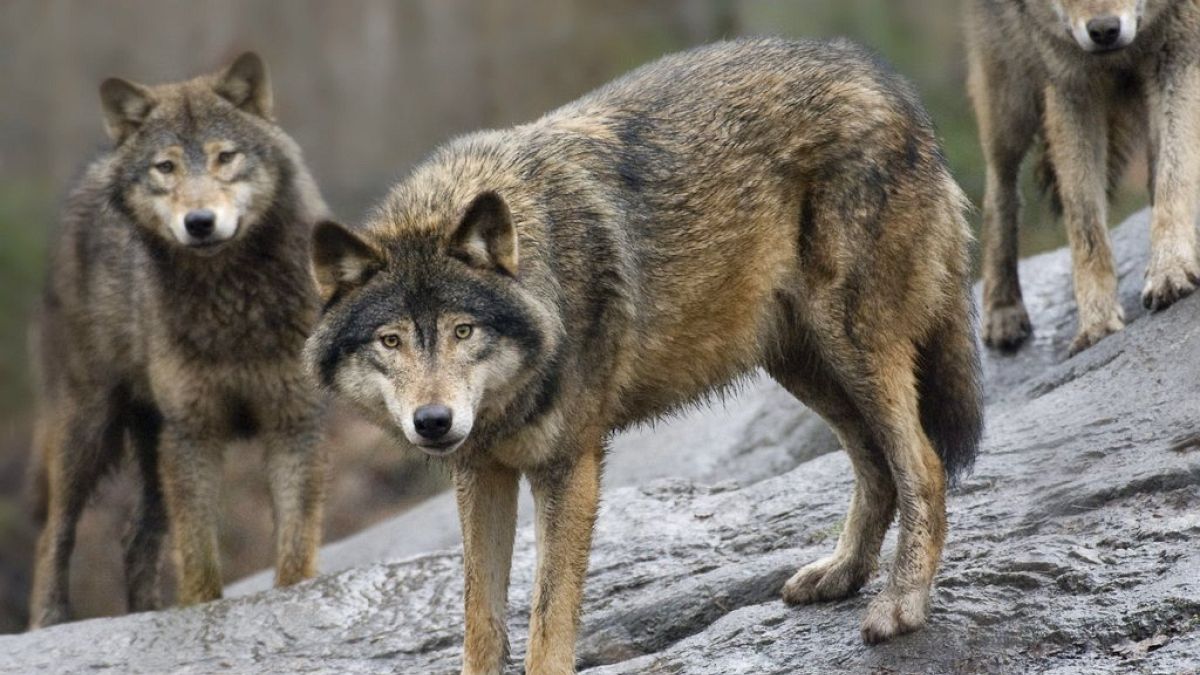Nature conservationists have denounced as ‘shameful’ a back-room agreement that saw all but two EU governments acquiesce to a European Commission proposal to ease protection for Europe’s burgeoning wolf populations.
The EU has moved a step further towards legalising the routine culling or hunting of wolves, with governments agreeing today to propose changes to an international convention on wildlife conservation in a move slammed by green groups.
EU diplomats agreed behind closed doors to vote in favour of tabling a motion to downgrade the status of wolves under the 1979 Bern Convention on the conservation of European wildlife and natural habitats, a proposal put forward by the European Commission last December.
The tipping of the balance in favour of the EU executive’s position appears to have been down in large part to Germany, the most powerful voice under the weighted voting system used in the EU Council.
Ministers are due to hold a formal vote on the proposal tomorrow (26 September). Only Ireland and Spain intend to vote against the proposal, according to diplomatic sources, with a few smaller member states planning to abstain.
Under the proposal, the status of the wolf would be downgraded from ‘strictly protected’ to ‘protected’ under the Bern Convention, which would then allow the EU to amend its Habitats Directive to ease protection for the species which, under current rules, can only be killed with specific authorization in extenuating circumstances.
Green groups were unanimous in their condemnation of the governments’ decision.
“By catering to populistic scaremongering campaigns and abandoning facts and pragmatic solutions, both the EU and the German government are further undermining European democracy and cohesion,” said Sophie Ruysschaert, a nature restoration specialist with BirdLife Europe.
For Sabien Leemans, senior biodiversity policy officer at WWF European Policy Office, the move sends a “disastrous and shameful signal from Europe” less than a month before world leaders are due to assemble in Colombia for the conference of parties (COP16) to the UN Convention on Biological Diversity.
“How can we ask other regions to protect their biodiversity and live with species like tigers, lions, or elephants, when we cannot live together with the wolf?” Leemans asked.
By contrast, the centre-right European People’s Party (EPP) congratulated itself for an intergovernmental agreement decision it put down to “years of persistent pressure” from the largest group in the European Parliament.
“This is a major breakthrough in tackling the sharp increase in wolf populations, which pose a growing threat to pastoral farming, tourism, and rural communities across Europe,” said MEP Herbert Dorfmann, the EPP’s agriculture policy lead.
Peter Liese, who heads the EPP delegation to the parliamentary environment committee, echoed Dorfmann’s comments, while asserting that “people are worried about the increase in the population of wolves in Europe”.
The European Commission welcomed the provisional agreement, stressing that EU member states would be obliged to “maintain a favourable conservation status for the species even after the change in status”.
“When it comes to any changes in EU law, we have also been very clear that what we are talking about is the wolf and only the wolf,” A spokesperson told reporters.
Copa-Cogeca, the most powerful conventional farming lobby group in Brussels, also welcomed the signal from governments. “We are glad to see the European Union institutions listening to the needs of farmers and rural dwellers despite the many pressures from those who often don’t have to deal with the consequences of attacks,” it said in a statement.
Following endorsement by ministers tomorrow, the EU proposal is set to be tabled at a meeting of the Standing Committee of the Bern Convention scheduled for early December.



